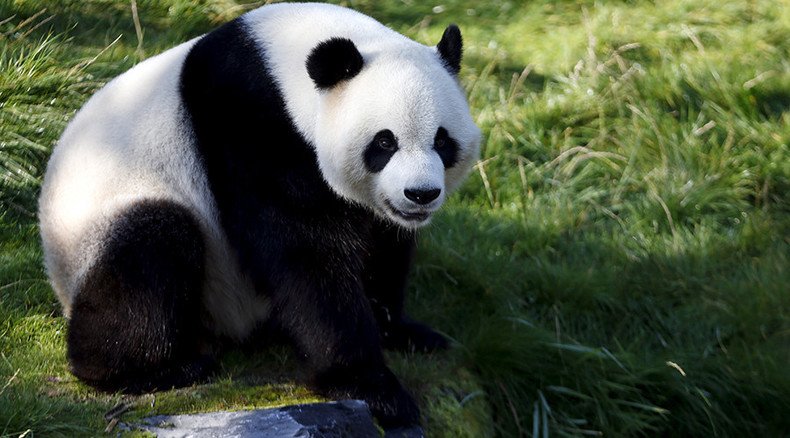Bamboo poo: Microorganisms from panda feces could help develop new biofuel, Belgian scientists say

Belgian scientists have made a new leap in panda excrement research. They hope that the digestion processes of the animals, while being kept on a tough bamboo diet, could lead to the development of new generations of biofuel.
READ MORE: Notorious panda performs gymnastics routine for adoring fans (VIDEO)
A new study, based on data from giant pandas, which became experimental “guinea pigs,” could promote a better understanding of new, cheaper ways to make so-called second generation biofuels, such as that which can be made from corn stalks, Reuters reported on Monday.
Panda poop by jeffgoonzales pic.twitter.com/EYJjNx7TQ2
— 8FIVE2SHOP (@8FIVE2SHOP) June 29, 2015A panda couple which lives in the Pairi Daiza zoo in Belgium, six-year-old Xing Hui (or Sparkling Star) and his girlfriend Hao Hao (which means “kind”), have been kept on an exclusively bamboo diet, eating about 30 kilograms of bamboo per day, so that scientists can understand the role of microorganisms in the animal's gut.
READ MORE: Panda power: Hong Kong specimen to set world record for longevity
“We can look for new enzymes which could be used to degrade tough biomass,” said Korneel Rabaey, a professor of biochemical and microbial technology at Ghent University, as cited by Reuters. “We can also go back to the animal and understand why it is eating only certain kinds and parts of the bamboo.”
My mom got me panda poop 💩 pic.twitter.com/j6UAspRCiu
— Aine Dillon (@xaineeeeeeex) July 23, 2015Previous research by other scientists who chose panda poo as a key element in their biofuel studies mainly focused on their digestive tract. It is a particularly intriguing topic, as genetically pandas should be carnivorous species, yet, they have adapted to a vegetarian lifestyle.
According to the team composed of Belgian, Italian and Chinese scientists, the toughness of bamboo stalks could be potentially helpful for studying the processing of fibrous material.
They had to be especially careful with the endangered animals. In order to conduct their research, the scientists first had to obtain permission from the Chinese government. They ensured that droppings were “to be collected in the panda cave when the animals are out,” to avoid any disturbance, according to Rabaey.
READ MORE: China’s ‘friendly envoy’ panda makes US comeback in 3D
Second generation, or advanced biofuels, are considered to be a more sustainable and progressive type of biofuel, manufactured from various types of plant or animal materials, for instance, so-called wood diesel, derived from woodchips.












